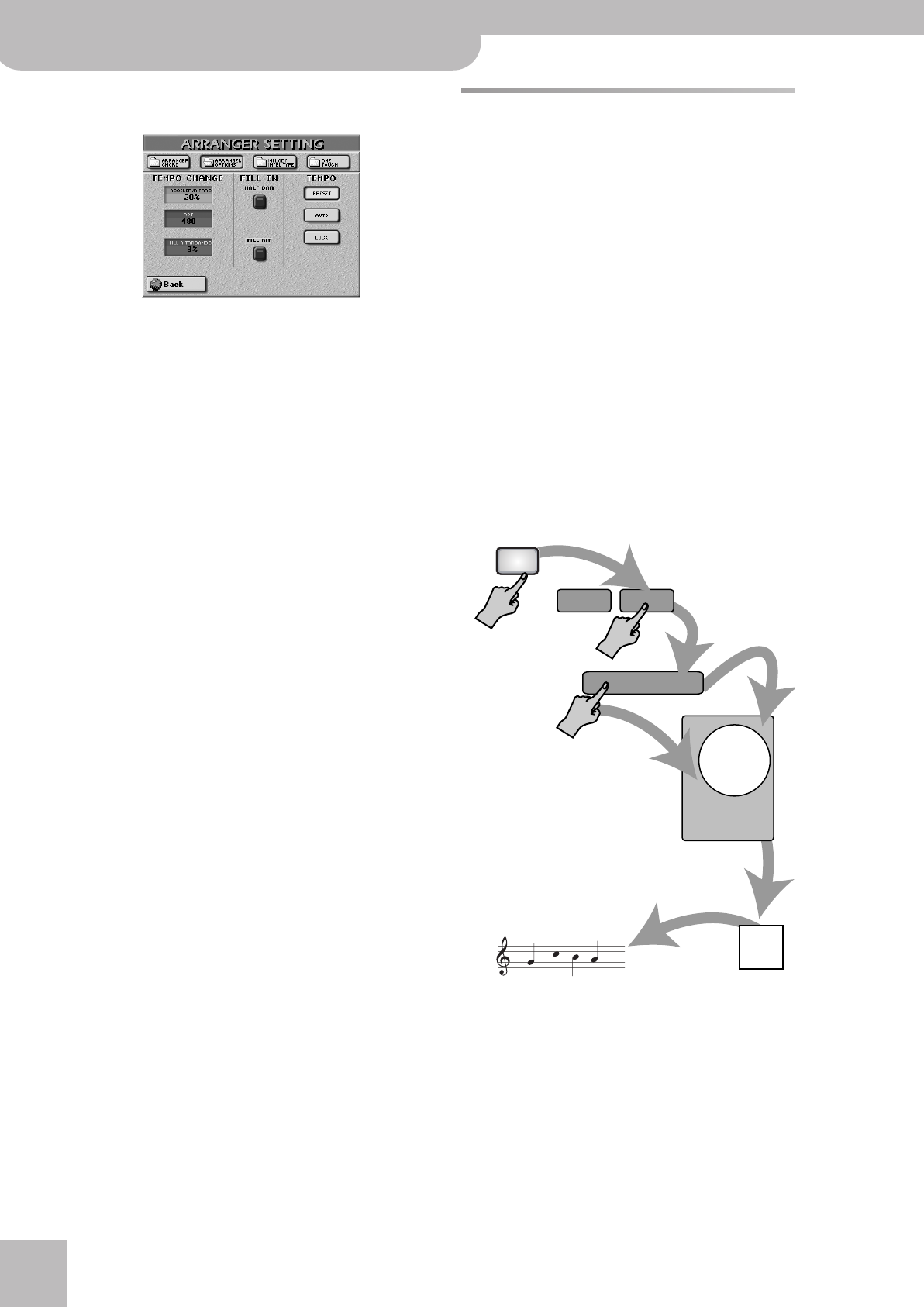
Additional Arranger/Style functions
70
r
E-60/E-50 Music Workstation
• Press the [ARRANGER¥SETTING] field, followed by the
[ARRANGER¥OPTIONS] field.
• Start Arranger playback and press the [FILL¥RIT] but-
ton icon to switch it on.
• Press the [MAIN] and a VARIATION [1]~[4] button.
The E-60/E-50 plays a Fill-In. The tempo slows down
while the fill is being played. At the end of the fill, the
Style returns to the previously set tempo (this is
called “a tempo”).
• Press the [HALF¥BAR] button icon to switch on the
Half Bar function. Certain pop songs in 4/4 contain
bars that only last two beats. The usual place for such
a bar is between the first and the second verse.
Another favorite position for “halved” bars is at the
end of a chorus or the bridge. Pressing this button
icon does not change Style playback right away. Only
when a Fill-In starts will the Half Bar function be
activated and play half the number of beats of the fill
you selected.
(7) Press the [EXIT] button to return to the main page.
Working with ‘external’ Styles
Using the CUSTOM memories
The E-60/E-50 provides 10 memories per family (i.e. 80
in all) that refer to Styles in the internal memory
(“INTERNAL MEMORY”) or on a memory card (“EXTER-
NAL MEMORY”). These memories behave exactly like the
factory memories.
In the case of a memory card, however, they only
“work” if the card in question has been inserted into the
PCMCIA slot. Thanks to the E-60/E-50’s powerful soft-
ware, loading a CUSTOM Style is as swift as working
with the factory Styles.
The Style referenced by the CUSTOM memory you select
is automatically loaded and copied to the Disk User
memory (see also p. 72). This is a RAM memory whose
contents are erased when you switch off the E-60/E-50
and overwritten when you select another CUSTOM
memory (or use the Disk User function).
Here’s in a nutshell what happens when you select a
CUSTOM memory. (Even though the drawing may sug-
gest that this takes quite some time, the E-60/E-50 per-
forms these steps in a split second.)
When you unpack the E-60/E-50, the CUSTOM mem-
ories are empty. So you first need to program your
own references to Styles.
Programming CUSTOM assignments
The E-60/E-50 comes with several Style examples in
internal memory you could use to try out the following.
Once you start working with your E-60/E-50, you will
probably copy external Music Styles to the internal
memory and establish CUSTOM links to those.
DATA
Music Style
DISK
USER
CUSTOM
PAGE 1
LIVE
BAND
You select a CUSTOM
memory.
The E-60/E-50 looks up the
name of the referenced Style
The data are loaded from
card or the internal memory.
This memory contains the
Music Style data.
The Style can be played back.
Card
E-60_50_OM_UK.book Page 70 Thursday, June 22, 2006 10:06 AM


















